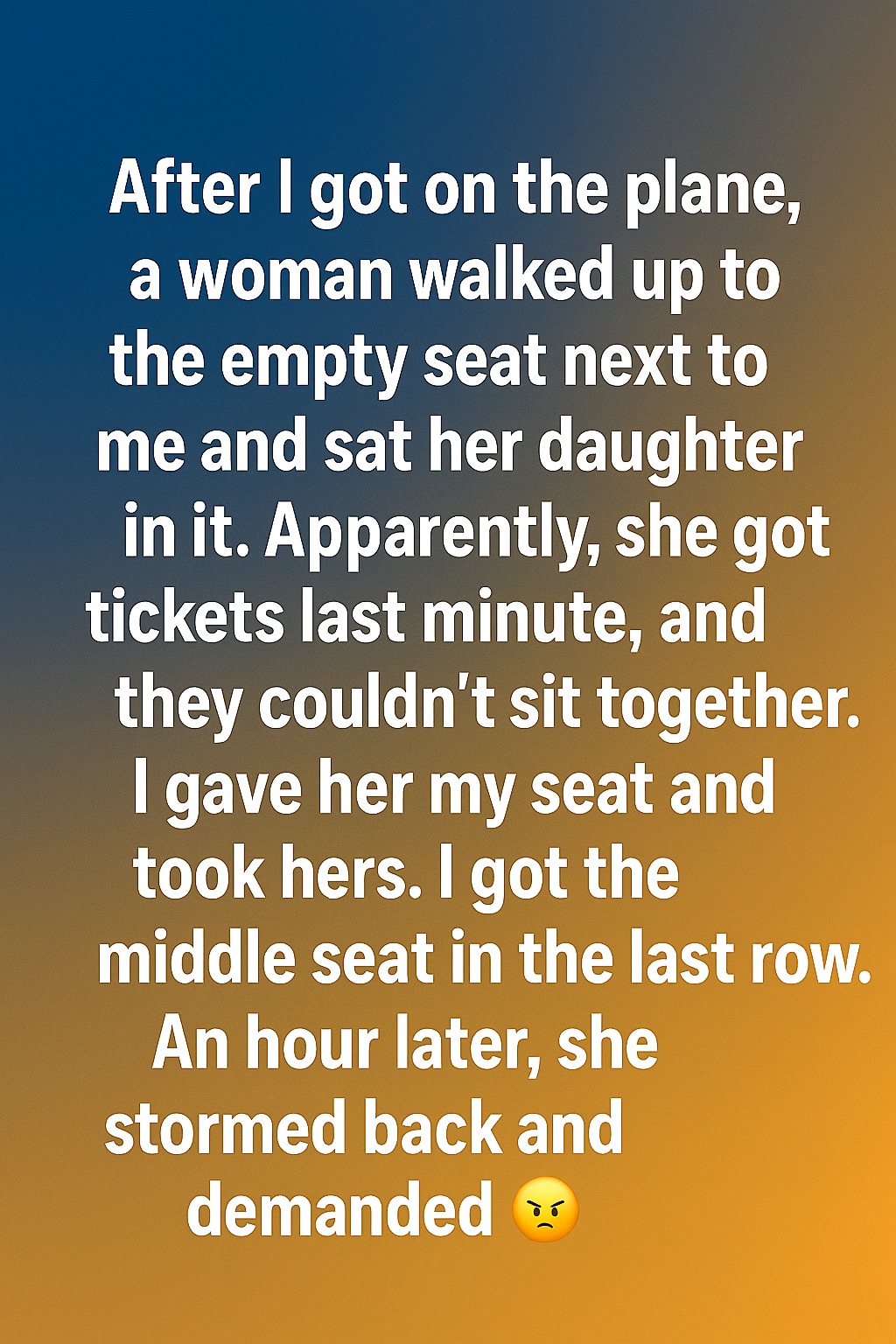Apparently, she got tickets last minute, and they couldn’t sit together. I gave her my seat and took hers. I got the middle seat in the last row. An hour later, she stormed back and demanded to know why her daughter looked nervous and uncomfortable. I calmly explained that she was doing fine but seemed a little anxious flying alone. The flight attendants had checked on her twice, offering her snacks and reassurance. I told her there was nothing to worry about and that her daughter was safe and being cared for.
The woman’s expression softened as she realized I wasn’t upset, nor had I said anything negative about her. She apologized quietly, explaining that traveling alone with her child was overwhelming and that the stress of last-minute tickets had left her flustered. I reassured her that I understood and that any parent would worry in her situation. The cramped seat in the last row didn’t bother me as much as I expected; what mattered more was that a child felt secure during the flight.
A little later, she returned again—this time with a small snack and a grateful smile. She thanked me for switching seats without hesitation and for being patient when she reacted out of anxiety. Her daughter peeked from the row ahead, giving a shy wave. It was a simple gesture, but it made the uncomfortable seat feel lighter. The flight attendants even joked that I deserved a medal for “unexpected kindness at 30,000 feet.”
By the time we landed, the mother was calmer, and her daughter was cheerful and relaxed. As we walked off the plane, she told me that my small act of kindness had reminded her that strangers can be supportive, even on stressful days. I realized too that helping someone rarely requires grand gestures—sometimes, all it takes is giving up your seat and offering reassurance to make someone else’s journey a little easier.
